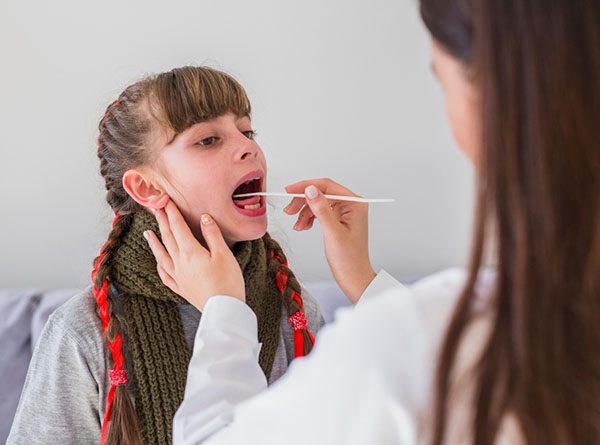Salivary Diagnostics
Oral Pathogen Test

Salivary Diagnostics Melbourne CBD
An Oral Pathogen Test is invaluable diagnostic tool to help identify specific pathogenic oral bacteria present in your body. Pathogenic oral bacteria are the nasty kind.
Once established in your oral cavity, they put you at a much greater risk for periodontal disease and chronic systemic inflammation (SI).
Additionally, these oral bacteria can migrate to and affect other parts of your body. Clinical research has shown that a number of pathogenic oral bacteria are linked to diabetes, heart disease, Alzheimer’s disease, cancer, rheumatoid arthritis, poor nutrition, pregnancy complications & strokes.
Clinical research has also proven that some of these links may be causational since it’s been found that pathogenic bacteria interfere with protein folding in the brain and body*.
If an Oral pathogen test is incorporated into a dental treatment plan, our dentists can identify and classify your specific risk factors for oral and systemic diseases.
This ensures a more comprehensive oral health assessment and a more effective personalised treatment therapy.
Pathogens Test Result

Test outcomes
The Oral Pathogen test lab report lists the harmful bacteria detected in your saliva, and indicates what course of antibiotic treatment you should take.
This enables us to develop a much more powerful and effective treatment plan specifically for your mouth. We administer the appropriate antibiotic either below the gum line or via medication. It’s that easy.
After your anti-biotic treatment, your dentist here will monitor your progress, be able to provide more effective follow-up treatment, and better manage your periodontal condition.
One of the tests done at Art De Dente looks for 11 pathogens that are known to contribute to periodontal destruction. (1) Once the test reveals which pathogens are contributing to the patient’s periodontal disease, it also offers antibiotic recommendations that target these specific bacteria.
When combined with periodontal maintenance visits and patient homecare, this test can lower a patient’s bacterial load, thus increasing positive outcomes. Retesting has shown that this reduction in bacteria can have a dramatic effect.
While the patient’s genetic profile cannot be changed, the knowledge that the person has an overactive inflammatory response can help the practitioner and patient understand that there is a need for more frequent continuing care, adjunctive therapies, or treatment with a dentist.
This information can also help patients manage and control their systemic health with the help of their physician.
For more information, please call 03 9642 8955 to book in for a consultation with our experts.
